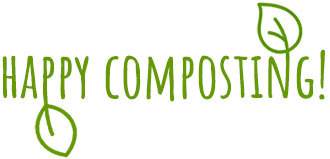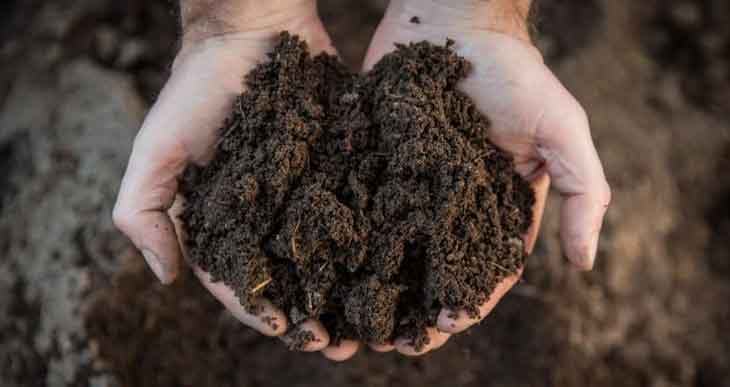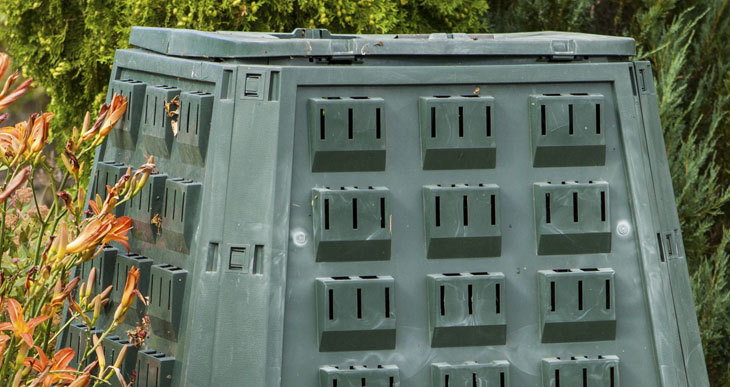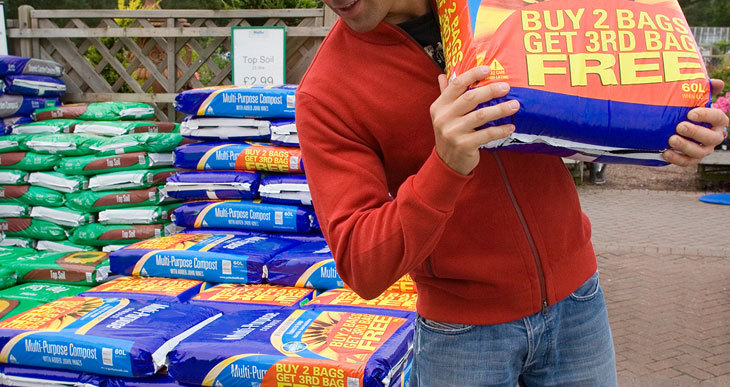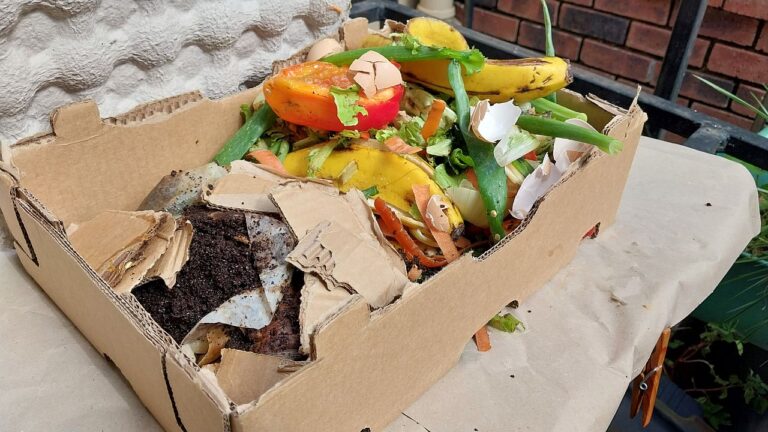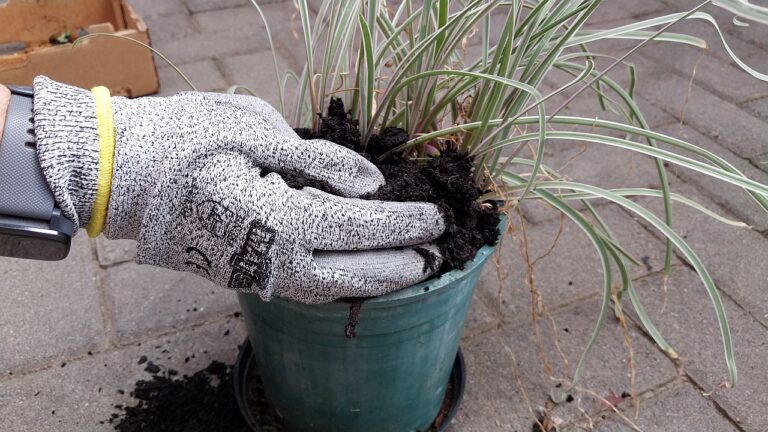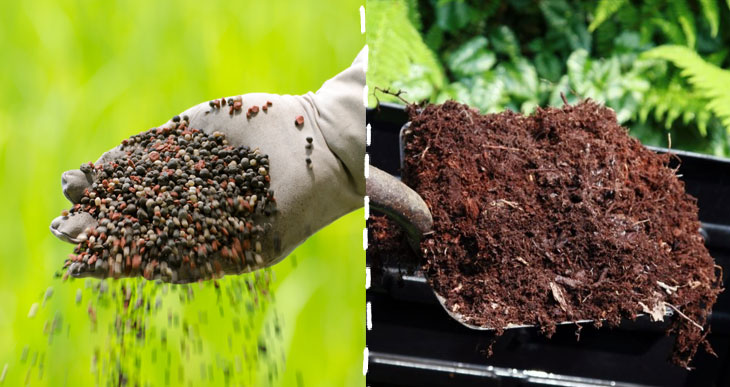Compost Leachate (Don’t Make This Mistake!)
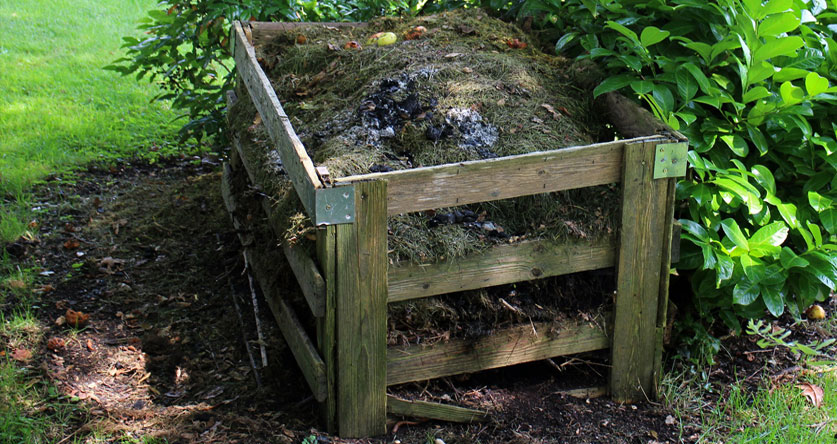
I remember the first time I checked my outdoor compost after a thundershower. I noticed a brown liquid seeping from the bottom of my bin. Aha! That must be the compost tea I keep hearing marvelous things about! I thought excitedly.
Now that I’ve been composting for years, I know the liquid wasn’t compost tea.
There’s another compost-infused liquid all gardeners should know about, as it can be more toxic than a tonic for your plants!
I’m talking about “leachate.”
Compost Leachate
The liquid I saw trickling out of my bin is called compost leachate.
But what is it, and why does it happen? Is it useful, or just something to ignore?
When I first started composting I had a lot questions about what to do with this stuff! You might have similar doubts. For this reason, it’s a good idea to know more about this substance and whether it’s suitable for your garden…
What Is Compost Leachate
Leachate is excess liquid escaping from compost that’s actively breaking down.
The liquid can be yellowish, light, or dark brown, and it can have no smell, or sometimes it can stink!
Different types of compost produce leachate, from worm composting to outdoor piles.
Leaching is normal. However, at some point in the composting process, you will probably see some leachate running out of your bin or pile…
Why Is My Compost Bin Leaking?
Your compost is leaking leachate because it’s getting rid of excess liquid.
These are the top 3 reasons compost gets too wet:
- Reason #1: You water it too much.
- Reason #2: You give it too many watery fruit and veggie scraps.
- Reason #3: Rain showers drench it.
Compost should be moist, not soggy. Check its moisture levels regularly by grabbing (gloved) handfuls and squeezing. The water content is spot on if it feels similar to a wrung-out sponge. However, suppose water streams out when you squeeze. Then your compost is too wet. Get the balance right by mixing absorbent brown organic wastes (like shredded paper or sawdust) into your compost.
Checking how wet compost is can be tricky. I use a moisture meter like this one (Amazon). Compost moisture levels should remain somewhere between 40 and 60%.
Also, you can prevent outdoor compost from getting soaked by covering it with a lid or tarp in rainy regions or seasons.
Is Compost Leachate Good For Plants
Whether leachate is good for plants depends on the specific compost it’s seeped through.
Although leachate usually contains nutrients plants love, like carbon, nitrogen, phosphorus, and potassium, it can also include things that make plants sick.
What’s in the compost and its stage of decomposition can turn leachate from plant-friendly to enemy.
How Compost Ingredients Negatively Affect Leachate
Compost made from manure or animal-based food scraps contains disease-causing organisms.
And so does its leachate!
Beware: Even if you carefully make compost from only fruit and veg scraps and garden waste, harmful organisms can still sneak in through rat or bird poop.
Compost (and its leachate) can also contain harmful chemicals such as pesticides and heavy metals.
How Decomposition Stage Negatively Affects Leachate
Perhaps you’ve been warned against giving your plants unfinished compost (before, it is crumbly, dark brown, smells like fresh earth, and had no bits you can recognize).
Well, the warning also extends to unfinished compost’s leachate. Both forms of unfinished compost can harm or even kill your plants.
Don’t worry about a bit of leachate leakage now and then. But monitor your compost to stop it from getting waterlogged. Plus, don’t grow plants in the soil into which the leachate drains – especially not plants you plan to eat.
How To Collect Compost Leachate
Many compost bins are designed to catch leachate in a tray or container.
If your bin lacks this function, DIY! Raise your bin on top of bricks or pieces of wood and place a container underneath it to collect the leachate.
Compost Leachate Uses
I know gardeners who spray leachate onto their plants’ leaves or add it to the soil, but working with leachate is risky business.
If you know your compost system is heating up correctly and breaking down quickly, the leachate should be safe to use.
However, I say keep it away from your edible plants! Avoid using it on your fruit and veg crops in the same way you should avoid using immature compost on these types of plants.
Can Leachate Be Used As Fertilizer?
Only use leachate as a fertilizer if you’re an experienced gardener, confident your compost doesn’t contain anything that could harm your plants. But dilute it first, and don’t give your plants any leachate that’s yellow and fruity-smelling or sludgy and stinky.
The usefulness of leachate as a fertilizer can depend on what was composted. This is because certain substances present in waste materials carry through to the leachate. For example, if you add food scraps from the kitchen cooked with salt, you can end up with high sodium levels that are potentially toxic to plants. This is why you should dilute leachate! Also, only use it on outdoor soil and not potted plants. This way, if any unwanted substances remain in your leachate fertilizer, they will wash away more easily into the earth than in a container.
FAQ
You might be confused between leachate and compost tea (like I was). Here’s how these two liquids compare.
What Is The Difference Between Leachate And Compost Tea
Whereas leachate naturally seeps out of too-wet compost during all stages of its decomposition, compost tea is an aerated brew you make with finished compost and water.
With leachate, you can’t be sure what you’re getting or whether it will benefit your plants. With compost tea, on the other hand, you can control conditions to create a fertilizer filled with goodness.
Compost tea recipes differ, but they usually involve seeping finished, healthy compost in chlorine-free water and aerating the mixture. Many recipes also include a catalyst to make helpful microorganisms multiply, like molasses.
Properly made compost tea gives plants a good dose of friendly microorganisms and nutrients to help them grow strong and fight diseases. You can spray the tea directly onto your plants or add it to the soil.
Can You Store Leachate?
Before thinking of bottling and storing leachate, make sure it doesn’t contain anything that could harm you or your plants.
Then follow these 2 steps:
- Step #1: Treat the leachate by aerating (you could use a fish tank aerator) and stirring it for about an hour.
- Step #2: Bottle the treated leachate. You’ll likely notice your bottle swelling in the first few weeks. This is normal. Just open the bottle occasionally to release the gasses.
The leachate should keep for about a year, but sniff it before you use it. If it smells bad, pour it down the toilet.
Safety tip: Since leachate can be harmful, try it on a few small plants before you spray it all over your garden.
